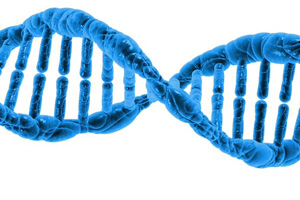Study shows potential of monitoring and inhibiting HDAC proteins
Joint press release of the the DZNE and the University Medical Center Göttingen
Goettingen (Germany), May 29, 2017. Laboratory experiments and data from people affected by schizophrenia suggest that tracking blood levels of a particular protein involved in gene regulation may open new possibilities for disease diagnosis. In addition, modulating its activity with drugs could lead to individualized treatments. An international team of researchers led by the German Center for Neurodegenerative Diseases (DZNE), the University Medical Center Goettingen (UMG) and partners in Magdeburg and Munich reports on these findings in the journal PNAS.
A potential biomarker
“Schizophrenia linked to early life stress is associated with specific gene regulation. This is a result of our study. We also see that HDAC1 plays a central role,” says André Fischer, site speaker for the DZNE in Goettingen and professor at the UMG. He points out that blood levels of HDAC1 could possibly serve as a biomarker: “This might help to spot schizophrenia patients that experienced traumas in early life. Identifying these individuals that are particularly resistant to common treatments would be a step toward a personalized therapy tailored to their specific condition. Besides this diagnostic benefit, measuring HDAC1 levels might help to monitor response to treatment.”
In further studies, Fischer and coworkers applied a pharmacological approach. Mice that had been subjected to stress in early life and displayed schizophrenia-like symptoms were treated with “Entinostat”. This drug is currently being tested in clinical studies for use in cancer therapy. It is an inhibitor that blocks the activity of HDAC1. As it turned out, the treatment largely normalized gene expression and alleviated disease symptoms.
Perspectives for treatment
“Great care has to be taken when interpreting results from animal experiments in the context of human diseases. This is especially true for such a complex disorder as schizophrenia,” Fischer stresses. “However, our data suggest that drugs that act upon gene activity could possibly mitigate symptoms of schizophrenia. Therefore, I am confident that epigenetics offer great potential for new therapeutic avenues.”
Original publication
HDAC1 links early life stress to schizophrenia-like phenotypes
Sanaz Bahari-Javan et al.
PNAS, DOI: http://dx.doi.org/10.1073/pnas.1613842114

